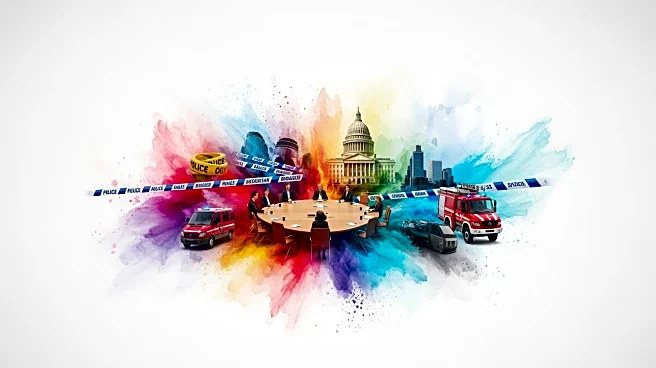What's Happening?
AI image and video models are increasingly being recognized for their distinct 'personalities,' a term used by creators to describe the models' unique capabilities and styles. This development is part
of the broader expansion of generative AI in creative industries, where tools like Google's Veo 3 and Adobe's Firefly are leading innovations. These models are not human, but they are characterized by their ability to handle specific tasks and excel in particular areas, which creators liken to choosing the right camera lens or paintbrush. The surge in AI model options has made selecting the right tool a critical part of the creative process, as each model offers different strengths and styles.
Why It's Important?
The growing role of AI in creative work signifies a shift in how content is produced, with implications for industries reliant on visual media. As AI models become more sophisticated, they offer creators new ways to express artistic visions, potentially reducing production costs and time. This evolution could democratize access to high-quality creative tools, allowing smaller studios and independent creators to compete with larger entities. However, it also raises questions about the authenticity of AI-generated content and the potential for over-reliance on technology, which could impact traditional creative processes and employment in creative fields.
What's Next?
As AI models continue to evolve, creators will likely explore hybrid workflows that integrate multiple AI tools to leverage their unique strengths. This approach could lead to more innovative and diverse content, as creators experiment with different models to achieve desired artistic outcomes. Companies developing AI models are expected to focus on refining their tools to minimize errors and enhance realism, which could further blur the lines between AI-generated and human-created content. The ongoing development of AI personalities may also influence how creators build relationships with their tools, potentially leading to new forms of collaboration between humans and AI.
Beyond the Headlines
The concept of AI models having 'personalities' introduces ethical considerations regarding the humanization of technology. As creators attribute human-like qualities to AI tools, it may affect how society perceives and interacts with technology, potentially leading to increased trust or skepticism. Additionally, the rapid advancement of AI in creative fields could prompt discussions about intellectual property rights, as AI-generated content becomes more prevalent. The balance between innovation and ethical use of AI will be crucial in shaping the future of creative industries.











